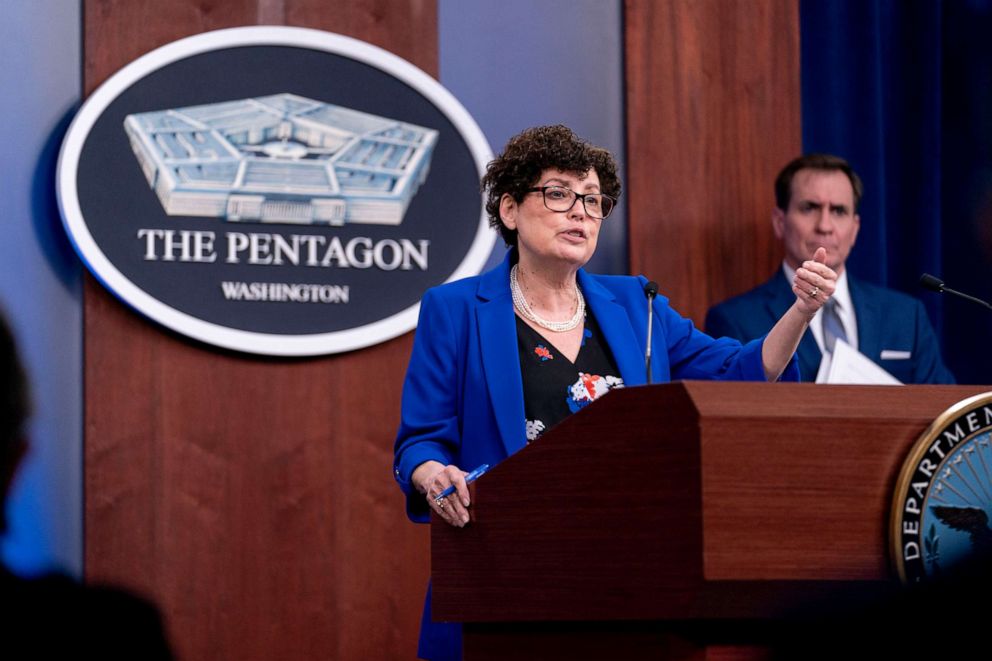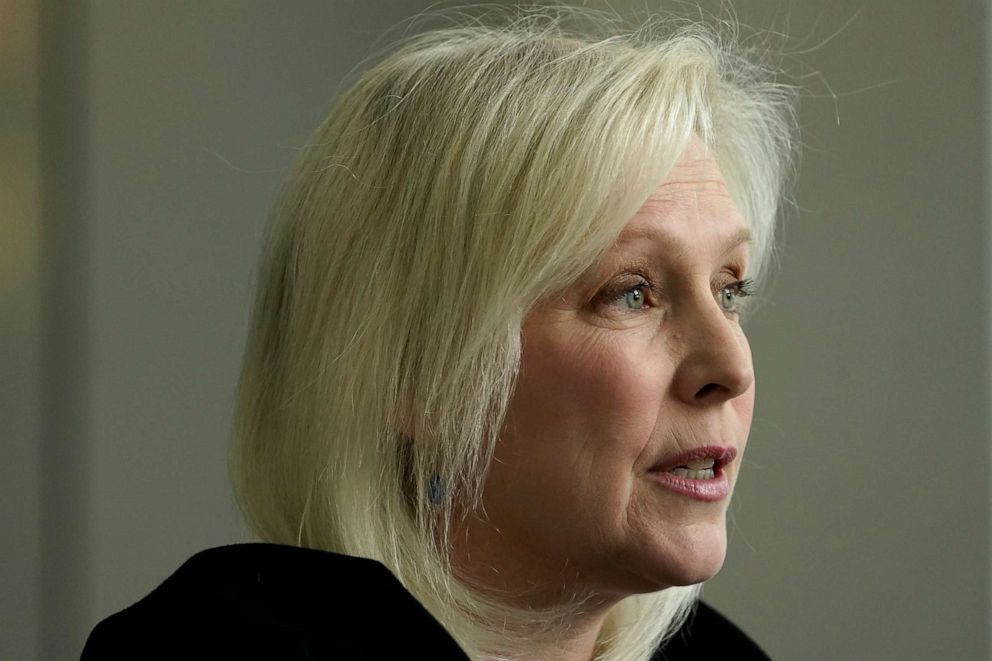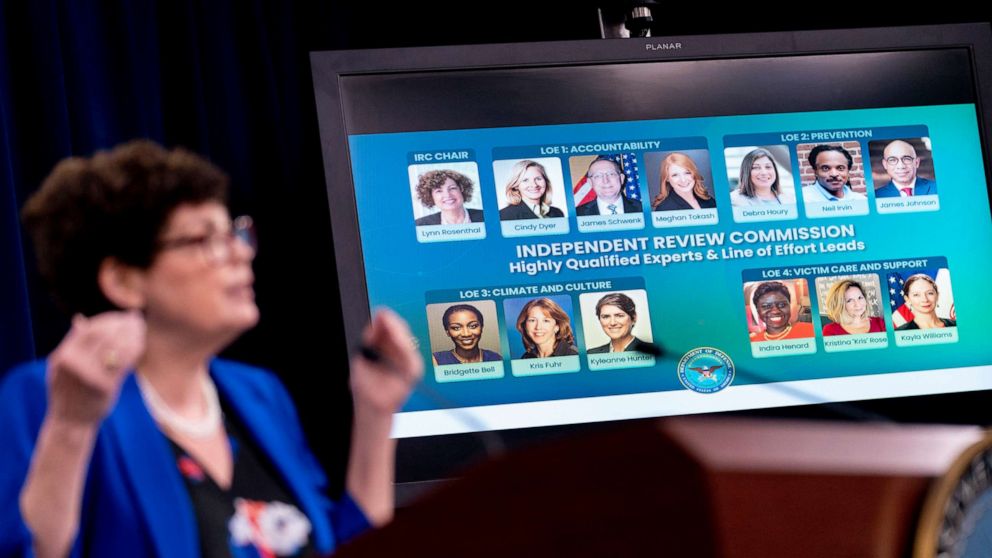New Pentagon panel to take on sexual assault in the military
When he took over as Defense Secretary Lloyd Austin said he was going to tackle the issue of sexual assault in the military head-on and look for new approaches.
He also launched an Independent Review Commission on Sexual Assault in the Military to take 90 days to address sexual assault and harassment in the ranks.
"These service leaders and department officials will be challenged to think of new ideas, to envision what is possible to meet the secretary's directive that all options should be on the table," said Lynn Rosenthal, the chair of the new commission at a Pentagon news conference following the panel's inaugural meeting Wednesday.
Ten of the 13 members of the newly formed panel are women and include civilian prosecutors, prevention specialists, civilian advocates, two West Point graduates and experts from the Department of Veterans Affairs and the Centers for Disease Control and Prevention.

In addition to announcing the commission members and their support staff, Rosenthal said a website would be set up where victims of sexual assault could provide their stories to help inform the panel.
"The most powerful voices, sadly, come from trauma and from pain," said Rosenthal. "These are the voices that we must hear ... and we are committed to doing so."
When reporters asked how the panel would be different from previous efforts that have not succeeded in bringing down the number of sexual assaults in the military, Rosenthal said it would bring "fresh eyes" to the issue.

"I think what we'll be asking -- what hasn't been tried? What happens in civilian society that is a best practice that we could try on the military side? And then, what are the unique attributes of the military environment that allows us to do things that we can't do on the civilian side? So I think that comparison is very important," she said.
While in the past the Pentagon has not supported Sen. Kirsten Gillibrand's proposal to move commanders out of the process for approving prosecutions in sexual assault cases, Rosenthal said her panel is interested in the proposal because all options are on the table.
Meanwhile on Capitol Hill, Gillibrand, D-N.Y., presided over a hearing on sexual assault in the military where she passionately lobbied for her bill and said the Pentagon's previous efforts have failed.
Her voice rising with each sentence, Gillibrand said, "Not one of these steps has reduced sexual assault within the ranks. We are right where we were when we started, nothing has changed. Nearly every secretary of defense since Dick Cheney has promised this country -- and the service members who serve us -- zero tolerance for sexual assault. Every general or commander that has come in front of this body for the past 10 years, has told us, 'We've got this ma'am, we've got this.' Well the truth is, they don't have it. The military justice system simply is in the wrong hands."

Testifying at the Senate Armed Services subcommittee hearing was sexual assault survivor Amy Marsh and attorney for Vanessa Guillen's family, Natalie Khawam.
The Guillen family has claimed that the 20-year-old soldier was a victim of sexual harassment at Fort Hood before she disappeared and was killed by a fellow soldier.
Army investigations have not proven those allegations, but Guillen's case has served as a turning point for military sexual assault victims to step forward and for the Army to look inward at its practices in how it treats victims and allegations of sexual harassment and assault.
The I Am Vanessa Guillen Act, advocated by the family to reform how the military addresses sexual misconduct, has received support from members of Congress, including Sen. Mazie Hirono, D-Hawaii. She said at Wednesday's hearing that she would soon be re-introducing the bill in the Senate.
"We need change, we need legislation," Khawam said. "I want to talk about -- not just through legislation, we need legislation that's actually going to create results."
"I ask that you protect these men and women that serve like they protect us," she added.
Marsh said she was sexually assaulted by a senior enlisted airman who worked with her husband at the base where they lived in Italy. The commanding officer of the unit initially refused to prosecute the assailant and Marsh described how the process had taken a personal toll on her and her family.
"It pains me to say this but at many points throughout this process, I felt it would have been much better if I just hadn't reported anything at all," said Marsh.
"If the status quo remains unchanged, bad actors will be able to continue their military careers while victims suffer in silence," she added. "And I don't feel any justice or fairness in the system that has failed me, and I did everything right."




